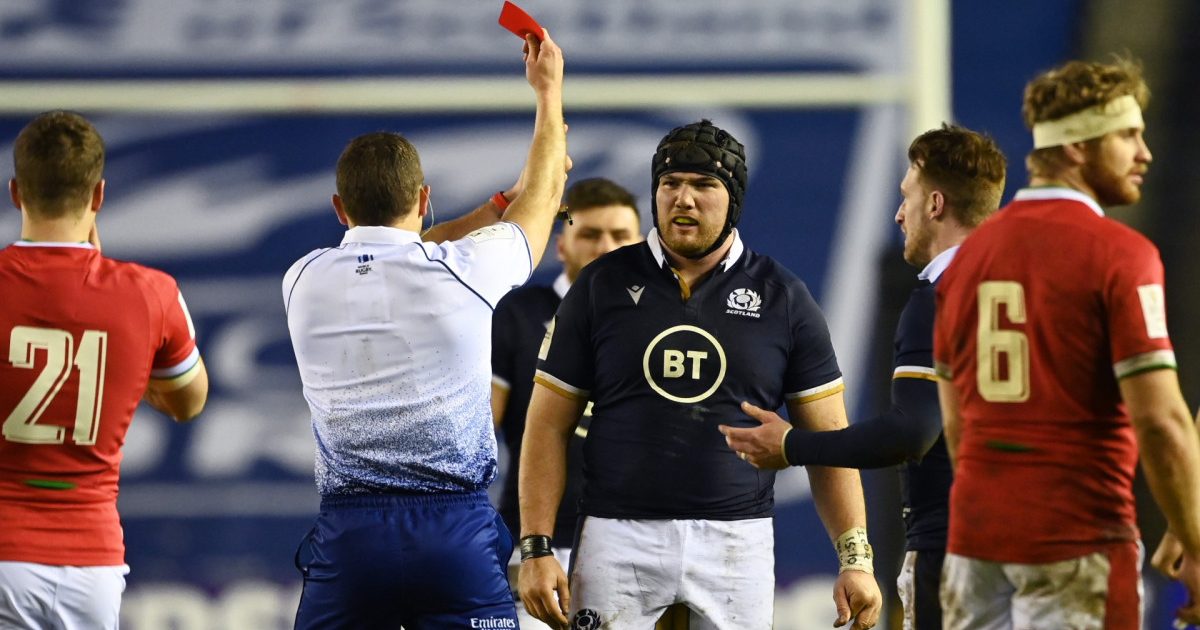3 hot takes as Gregor Townsend names Scotland team to host Wales

Scotland were exceptional in attack last weekend, beating England with a heartwarming zest to register yet another Calcutta Cup victory, but Gregor Townsend knows his team must now build on that fantastic start by doubling up in the W column when much-changed Wales visit Edinburgh on Saturday. Here are three RugbyPass hot takes on the Guinness Six Nations selection announced on Thursday:
Oops!… Don’t do it again
Hard to credit that it is more than 20 years since Britney Spears was rocking the pop charts with ‘Oops!… I Did It Again’. It’s a tune that Scotland will hope won’t be messing with their heads this weekend. Twice they have beaten the English in the championship round one, twice they have demoralizingly stuffed it up the following week versus the Welsh.
Third time lucky? They will very much wish so and they have pinned their ambitions on the recalled Zander Fagerson being a charm on this occasion. It was two years ago, just seven days after Scotland had won away to England, that the tighthead endured the horrible ordeal of getting sent off and seeing his team go on to lose.
Now fit after his winter injury issues with Glasgow, Fagerson is the sole change to the starting XV that won in London and how apt would it be that his return coincides with Scotland getting that elusive win over Wales?
The inclusion of the front-rower sees WP Nel, a Twickenham starter, revert to the bench with Simon Berghan missing out. It means that Fagerson will intriguingly find himself scrummaging against Wyn Jones, the Welsh player he clattered into at the ruck to earn that infamous red card 24 months ago. Expect a fascinating head-to-head to unfold.
No handbrake, please
The approach at Twickenham was very much in the give-it-a-lash mould and two things stood out: the cojones of hooker George Turner to throw lineouts beyond his forwards at the set-piece so that players elsewhere could fasten onto the ball at speed, while all four tries were scored by backs in a variety of ways – a dinky kick through the cover, an incredible solo run, an intelligent snip around the ruck, and some brilliant end-to-end handling.
How they probed and stretched the England defence was lovely to watch and there should be no reason why Scotland can’t similarly entertain now that Townsend and co are back in front of the home fans at Murrayfield.
Scotland had no fear about taking risks at what should have been an intimidating Twickenham and while Wales, with their five changes in the pack, are coming north tooled up to play spoilsport, the effervescence in the likes of Finn Russell and Duhan van der Merwe must be allowed to prosper rather than a tighter, less risky approach getting adopted.
The Scots have shown they have the talent in abundance to entertain, so Townsend, having named 21 of the same match day 23, just needs to let them it again rather than stylishly change tack. Yes, Russell missed six tackles against England, with Sione Tuipulotu missing three in the channel outside him, but what they did on the other side of the ball more than made up for that defensive shortcoming.
Shopping local
When Townsend named his 40-man Six Nations squad in mid-January it was noticeable how 37.5 per cent of his picks – 15 players – played their club rugby outside Scotland. There were 11 attached to English Premiership teams, three to non-Scottish URC sides, and one more over in the French Top 14.
However, that beyond-borders feel to the overall squad hasn’t had as massive an impact on the actual Scotland team chosen by Townsend. Despite changing one starter and one of the bench to face the Welsh, the Scots head into round two with a match day 23 containing just five non-locally based players (21 per cent).
Instead, the dominant emphasis is on players who ply their trade at either Glasgow or Edinburgh – and the inclusion by Townsend of 18 of them must surely be viewed as a massive vote of confidence in what is being done at those two clubs.
It reinforces that a player can prosper at Test level from those Scottish franchises without having to move to England, France or elsewhere in the URC.
Scotland (vs Wales, Saturday – 4:45pm): Stuart Hogg; Kyle Steyn, Huw Jones, Sione Tuipulotu, Duhan van der Merwe; Finn Russell, Ben White; Pierre Schoeman, George Turner, Zander Fagerson, Richie Gray, Grant Gilchrist, Jamie Ritchie (capt), Luke Crosbie, Matt Fagerson. Reps: Fraser Brown, Jamie Bhatti, WP Nel, Jonny Gray, Jack Dempsey, George Horne, Blair Kinghorn, Chris Harris.




































































It's like those articles that describe a game, but fail to mention the score.....
Where's the team you were going to name?